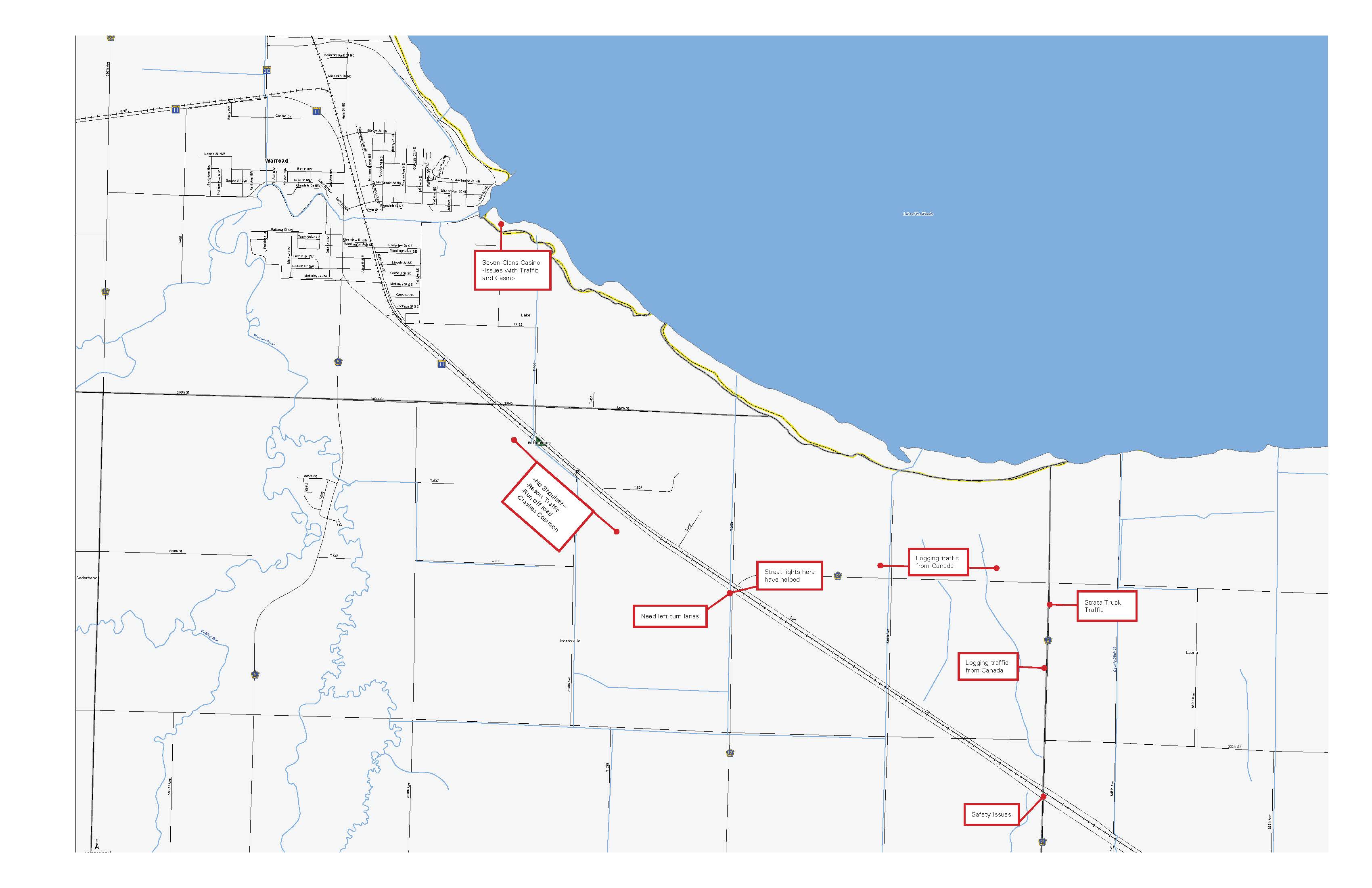Public involvement
MnDOT worked with the City of Crookston for this locally led study of the downtown corridor and there were many opportunities to take part in the planning study.
Previously Held Meetings
The first public open house was held on Monday, Nov. 15, from 6 - 7:30 pm at Crookston City Hall
- Download meeting display boards
- Watch a recording of the meeting presentation
A second open house was held on Tuesday, May 24 from 5:30 - 7:00 p.m. at Crookston City Hall
- Download meeting display boards
- Review meeting presentation slides
- Watch a recording of the meeting presentation
The city council reviewed and approved the recommended alternative and associated improvements on Sept. 12.
to Highway 2 and show how the corridor could look in the future through downtown Crookston. The presentation will be held during the scheduled City Council Meeting.
- A live stream of the meeting can be viewed at www.youtube.com/c/cityofcrookstonchannel
Online
Submit a comment
Just have a question or comment to share? Submit your comment online.
Stay up to date
Sign up for email updates
Community Review Panel
In order to work more closely with the community; local leaders, residents and business owners will work directly with project staff throughout the study. This partnership allows for a direct connection to the community through a transparent and collaborative process. The committee will help to identify the current issues and create a local vision for the corridor. These neighborhood leaders will help ensure that community values are represented in the development and evaluation of project alternatives, while fostering conversations within the community.
Corridor Study Process

An in-depth study take time
The year-long process wrapped up in the fall of 2022. As the study progressed, it moved through a few different phases
- Existing Conditions and Priorities
- Project study kick off
- Assemble the study committee members to form a Community Review Panel
- Establish priorities and identify existing issues
- Alternative Development
- Community Panel examines issues and alternatives
- Public meeting to share progress and results
- Recommendations
- Panel recommends an alternative to City Council
- City Council recommends an alternative to MnDOT
- MnDOT evaluates/approves City recommendation
- Program and Design
- Once an alternative vision is selected it can move into the detail design phase and be programmed for funding

